The Indian army has been in the news and off late, and more often than not, for the right reasons. Rediff.com's Vicky Nanjappa brings some startling statistics which paint a grim picture – the number of suicides in the armed forces is on a steady rise.
One hundred and nineteen personnel from various wings of the armed forces committed suicide in 2011. In 2010, the number was 101.
The number of Central Reserve Police Force personnel who have committed suicide has seen a rise in 2011. A note by the Ministry of Home Affairs shows that there were 42 suicides in 2011, compared with 28 suicides in 2010.
Member of Parliament Rajeev Chandrashekhar, who sought this information, provided us with the details that were shared with him by the Ministry of Home Affairs.
Member of Parliament Rajeev Chandrashekhar, who sought this information, provided us with the details that were shared with him by the Ministry of Home Affairs.
The MP sought to know the following details:
Whether it is a fact that incidents of suicides, ragging and intemperate behavior by personnel of the CRPF, the Central Industrial Security Force and other forces, including those on VIP duties are on the rise;
2) If so, the year-wise and force-wise details thereof for the last two years;
3) Whether any study has been conducted in this regard; and,
4) If so, the outcome thereof and the remedial measures that government has taken to contain such incidents?
In 2010, the CRPF witnessed 28 cases of suicides and the number shot up in 2011. Even the cases of intemperate behavior increased by a large margin in the CRPF. In 2010, the number of intemperate behaviors was recorded at 4; while in 2011 the number shot up to 16. However, there was some respite in the case of ragging.
There were no such incidents reported in the years 2010 and 2011.
The case of the Border Security Force is no different. In 2010, there were 29 cases of suicides which shot up to 39 in 2011. The number of intemperate behavior however saw a decline -- 5 in 2010 -- to 3 in 2011. No cases of ragging were reported in both years in the BSF.
The statistics for the Indo-Tibet Border Police are as follows. The number of suicides came down in 2011, at 3. In 2010, there were five such cases reported. There were however no cases of intemperate behavior or ragging reported from the ITBP in 2010 and 2011.
At the Services Selection Board, there were 12 suicides reported in both - 2010 and 2011. While 2011 saw two cases of intemperate behavior, there were no such incidents in 2010. There were also no cases of ragging reported.
At the CISF there was some marked improvement in the figures pertaining to suicides. The number of suicides in 2011 was 11, while in 2010, it was 17. There were no cases of intemperate behavior or ragging reported both in 2010 and 2011.
At the Assam Rifles, the number of suicides reported in 2010 was 10, while in 2011 it was nine. There was one case of intemperate behavior in 2011, while no cases of ragging were reported.
At the National Security Guards three suicides were reported in 201, but there were no such cases in 2010. However, no case of either intemperate behavior or ragging was reported in both years.
There have been various reasons that have been attributed to the growing number of suicides in the armed forces. Although, there have not been full-blown wars that have been fought in a long time, reports suggest that the number of suicides has gone up because of stress levels.
The other reasons that are being attributed are lack of proper leave, bad service conditions and also low pay.
After various studies were conducted, it was found that psychotic disorder, alcohol dependence, schizophrenia and neurotic disorder attributed to suicides. The Indian army, on its part, is trying to rectify the issue and has been conducting several camps to study these problems.
The army also says that it has relaxed the leave rules for the benefit of the soldiers.
The Ministry of Home Affairs says that a study was conducted through the Bureau of Police Research & Development into the factors causing the stress and to suggest the remedial measures for the same.
The team in its report submitted in June 2004, made recommendations which were broadly classified under three heads -- Organisational (37 recommendations), Individual (8 recommendations) and Governmental (3 recommendations).
The government has already considered these recommendations to address the stress related problems, their causes and effects on the personnel to check the incidents of suicides.
Remedial measures have been taken by the government to control such cases, including easing of job related stress and improving the working conditions, behaviour of senior officers and mental health of the personnel.
What the government is doing:
a) Implementing transparent, rational and fair leave policy;
b) Grant of leave to the personnel to attend to their urgent domestic problems/issues/needs;
c) Regular interaction -- both formal and informal, among commanders, officers and troops to find out and address their problems;
d) Revamping of grievances redressal machinery;
e) Regulating duty hours to ensure adequate rest and relief;
f) Improving living conditions through provision of basic amenities/ facilities for troops and their families;
g) Motivating the forces through Increased risk, hardship and other allowances;
h) Provision of STD telephone facilities to the troops so that they can get in touch with their family members and to reduce tension in remote locations;
i) Better medical facilities for troops and their families, including introduction of composite hospitals with specialised facilities;
j) Organising talks by doctors and other specialists to address their personal and psychological concerns;
k) Yoga and meditation classes for better stress management;
l) Recreational and sports facilities and provision of team games and sports;
m) Providing welfare measures such as a Central Police canteen facility to the troops and their families and also scholarships

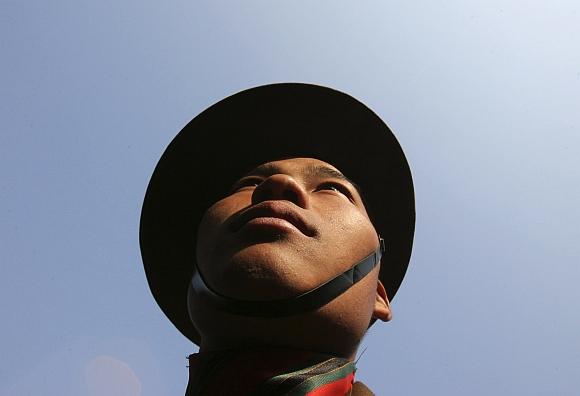
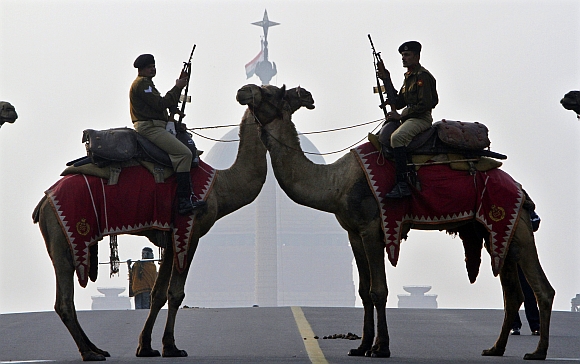
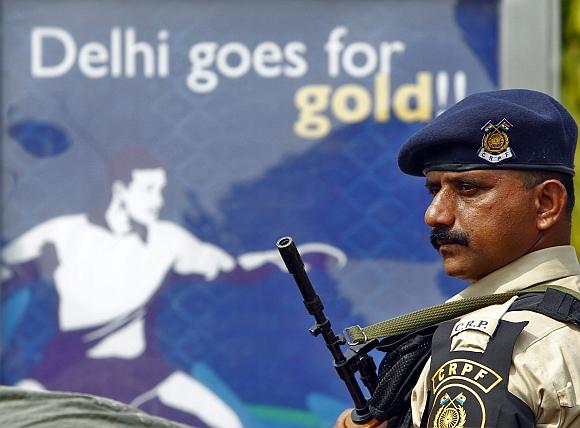
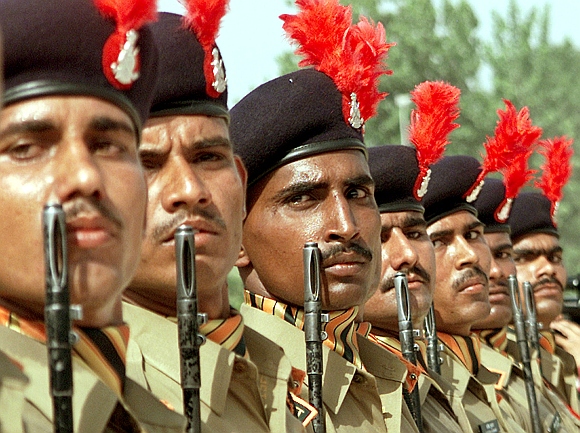
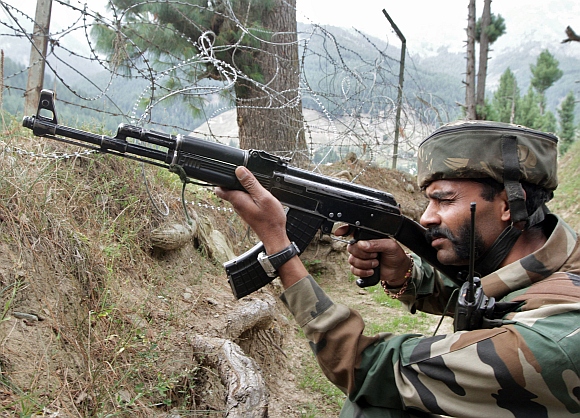
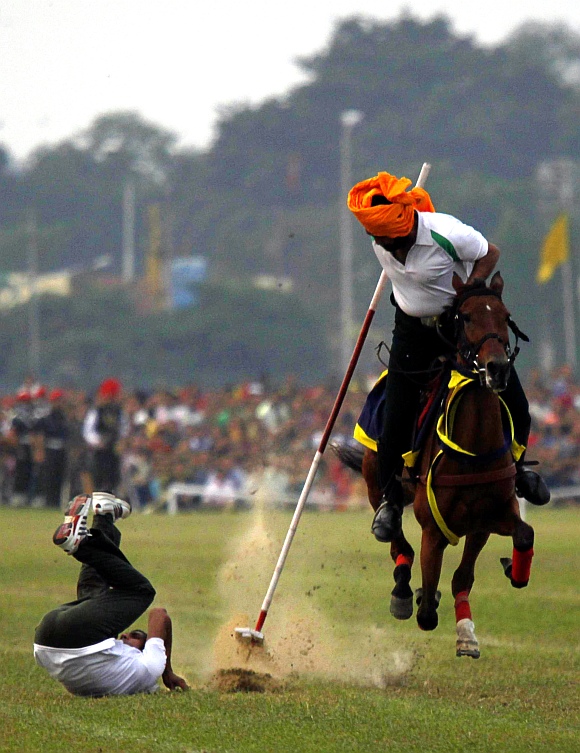

0 comments:
Post a Comment